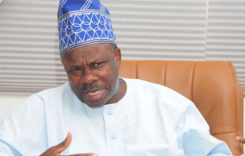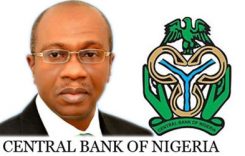The Central Bank of Nigeria spent $4 billion from the nation’s external reserves to defend the local currency in 12 months, statistics obtained from the CBN website on Tuesday showed.
The data also revealed that the external reserves would likely be closing the year on the $25 billion mark.
The external reserves stood at $25.361bn on December 22, 2016, the latest data from the CBN showed.
On December 22, 2015, the reserves stood $29.341bn. This means that the external reserves have fallen by $4bn in 12 months. It also means that the CBN has depleted reserves by 14 per cent of its value as at the end of last year to defend the naira.
On December 31, 2015, the last day of the year, the external reserves recorded $29.069bn.
The controversial defence of the naira by the CBN has come under severe criticism by economists, who believe that the forces of demand and supply should be allowed to determine the exchange rate of the naira, at least to a considerable level.
The foreign exchange reserves rose to about four-month high of $25.361bn on December 22, the CBN latest data showed.
In less than one week, the reserves rose by almost $300m from $25.084bn recorded on December 16, 2016 to $25.361 on December 22, 2016.
However, currency and economic experts are not sure if the marginal increases in the external reserves’ level are sustainable amid a falling naira and acute shortage of dollar in the foreign exchange markets and the economy.
“We are not sure the extent this can go. Currently, the FX market is not a free-float one where the interplay of demand and supply determines price and volume. The uptick is not as a result of supply over demand. It happens when there is a slowdown in the allocation of the FX,” the Chief Executive Officer, Cowry Asset Management Limited, Mr. Johnson Chukwu, said.
A senior associate in investment banking at Afrinvest, a research and investment firm, Mr. Ayodeji Ebo, said the gradual increase might only be sustainable if the oil price maintained its current level and there was a continuous ramp up in oil production.
The nation’s fast-depleting reserves recorded $23.89bn low on October 19, 2016.
As a result, the reserves dropped by 15.9 per cent from last year when they closed at the $29bn mark.
At the end of November, 2016, the reserves stood at $24.77bn, up from $23.95bn on October 31.
The foreign exchange reserves declined to $24.92bn on September 14 from $25.11bn on September 9.
The reserves had fallen from $26bn on August 4, 2016 to $25.97bn on August 5 as the central bank stepped up dollar sales to boost liquidity at the interbank market and support the ailing naira.
The naira, which touched an all-time low of 365.25 per dollar on August 18 at the official market, has consistently closed around 305.5 in recent weeks.
The CBN had on June 20 lifted its 16-month-old naira peg, following overwhelming dollar demand from companies and calls for a free floating of the naira by industry experts.
Experts argued that the central bank had yet to fully allow the naira to float freely.
The CBN has struggled to support the naira as the country’s external reserves continue to fall.
Dollar shortages have caused many companies to halt operations and lay off workers, compounding an economic crisis exacerbated by the fall in global prices of oil, which accounts for over 70 per cent of Nigeria’s budget revenue.
Experts expect the naira to depreciate further and hit the 500 mark to the United States dollar at the parallel market next week as the greenback scarcity persists and the CBN cuts supply to foreign exchange operators.
The local currency closed at 485 per dollar at the parallel market on Friday, up from 495 the previous day.
Meanwhile, the Bureau De Change operators are now getting $8,000 each per week against the usual $15,000 each per week.
The severe shortage of the dollar has put the naira under persistent pressure at both the official and parallel forex markets.
Economic and financial experts said unless the lingering dollar supply problem was abated, the volatility in the exchange rate and the consequent economic challenges might continue.




